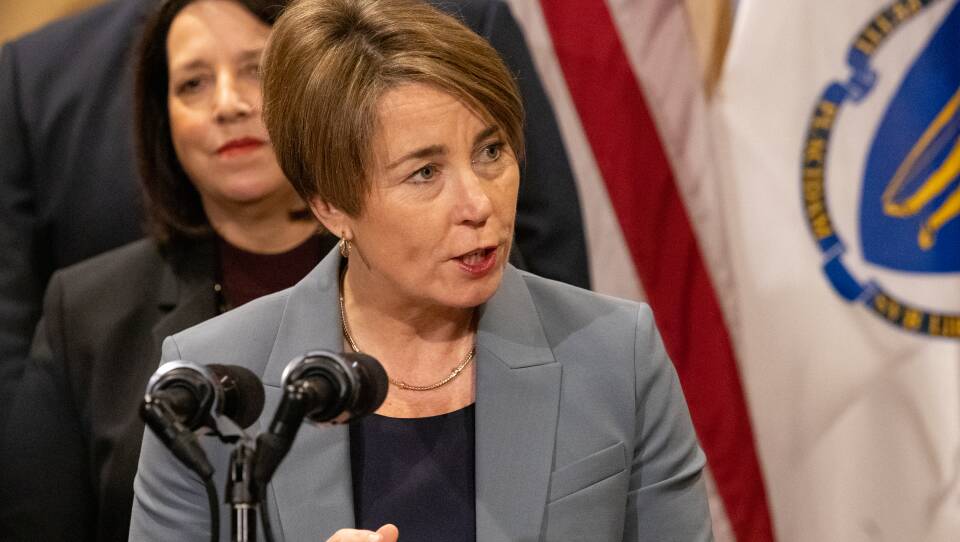Gov. Maura Healey and her counterpart from Illinois are calling on Congress to safeguard the right to access and use contraception like birth control pills and IUDs, a move they say takes on added significance this election year.
As the two-year anniversary approaches of the Supreme Court ruling that struck down the constitutional right to an abortion, U.S. Senate Majority Leader Chuck Schumer plans to bring a bill dubbed the “Right to Contraception Act” to the floor for a vote Wednesday. Massachusetts Sen. Ed Markey is among its lead sponsors.
Healey and Illinois Gov. J.B. Pritzker, both Democrats, stressed in a virtual press conference Monday how the future of reproductive rights are at stake in the upcoming presidential election.
Last month, presumptive Republican nominee for president Donald Trump suggested he was open to restrictions on birth control, then walked those comments back .
Healey called it “remarkable” that Trump “said that he’s even looking at restricting access to contraception.”
“I think all we have to do is look at his track record when he was president to know what he will do if elected,” Healey said. “Again, I was attorney general during the Trump years, and I can tell you firsthand, Donald Trump gutted Title X family planning funding. This caused nearly a thousand clinics to shut down across the country, and it took away access to health care, including contraception, in those communities and for low-income people around the country.”
Healey serves on an advisory board for President Joe Biden’s reelection bid. Democrats are positioning reproductive rights as a key campaign issue.
“Democrats will never relent until we reverse the immense damage MAGA Republicans and the Supreme Court have inflicted, and we remain absolutely committed to doing everything we can to protect women, families and reproductive freedom,” Schumer wrote in a letter to colleagues , suggesting more legislative action to come.
A vote in the Senate, Healey said, will put Republicans on record on the issue of contraception. She and Pritzker called for American voters to hold those lawmakers accountable.
“Republicans cannot hide from this issue any longer,” Pritzker said. “Voters deserve to know where every single Republican stands on the right to contraception. And if they vote no, they need to answer why.”
Both governors also outlined steps their states have taken to protect reproductive health care, including birth control.
In Massachusetts, Healey said, state law allows people to obtain a year’s worth of contraceptives at once, emergency contraception is available at no-cost, and most health insurance plans must provide copay-free coverage for at least one option of each type of birth control.
A law Healey signed last year also expanded pharmacists’ authority to prescribe and dispense certain hormonal birth control, including patches and pills, without first requiring a doctor’s prescription.
“I think this is just common sense, and I think most everybody understands that because being able to decide if and when to use contraception and what type to use, it’s essential — for women’s health, for women’s economic mobility, which then includes their families’ economic mobility, and fundamentally for freedom,” Healey said.





